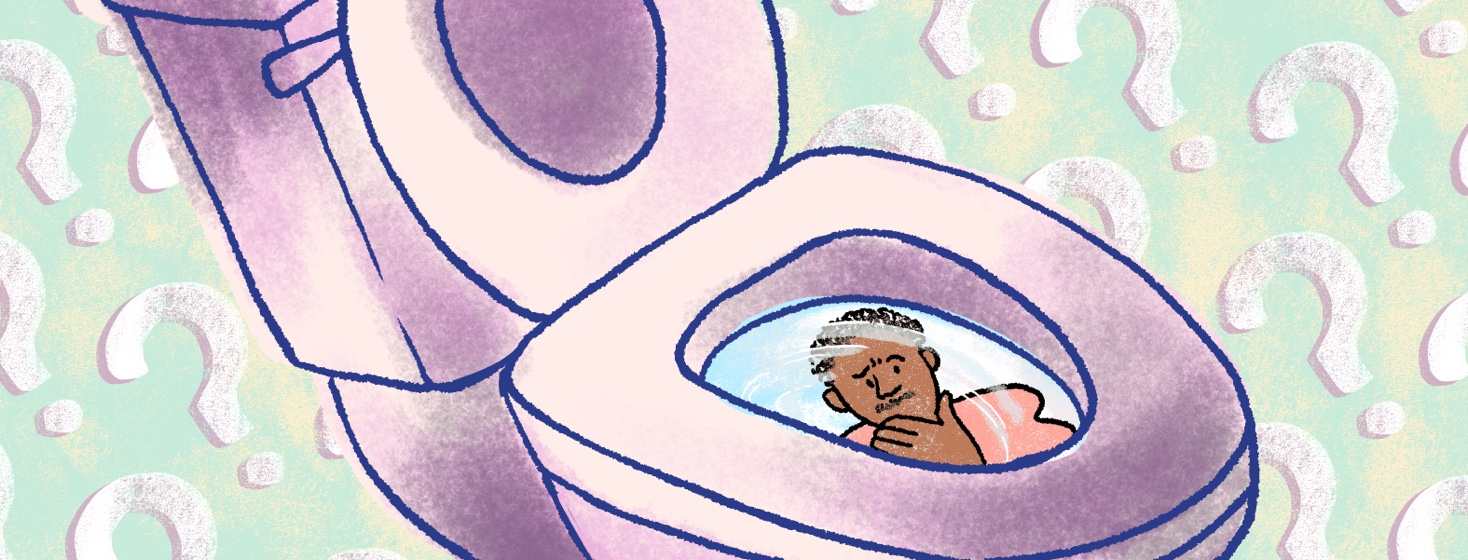Prostate Cancer Symptoms...Or Lack Thereof
Since my diagnosis, I have learned that prostate cancer usually doesn’t have any signs or symptoms in the early stages. In some cases, by the time symptoms develop, cancer may have already spread. Detecting prostate cancer in the early stages offers the best hope as many treatment options are available, including active surveillance.
Some of the symptoms men may experience include:1
- an increased need to pee, especially at night
- an immediate or sudden urge to pee
- a weak or interrupted stream
- difficulty starting or emptying the bladder
- pain or burning sensation
- loss of bladder or bowel control
- difficulty achieving erections
- blood in pee or semen
- painful ejaculation
- pain in the back, hips, thighs or shoulders
- weight loss and fatigue
Few early warning signs
Before being diagnosed with prostate cancer, I didn’t think I had any symptoms, at least nothing significant. Therefore, it was a shock to learn that my cancer was in the final stage before escaping the prostate.
On reflection, I did have some of these symptoms but thought they were just part of the natural aging process. Therefore, I never gave them a second thought. The two most notable symptoms for me were a weak stream and less frequent erections. In both cases, the changes were very gradual over several years, and therefore not as noticeable.
I kept justifying my symptoms
As I’m not a qualified doctor, I probably shouldn’t have done a self-assessment of my health. I always found an excuse to justify my symptoms and even believed I was bladder shy. Especially in public restrooms. I honestly thought that I couldn’t pee if someone were watching or standing beside me. No matter how bad I had to pee, if the bathroom were overly crowded, I’d have to find another place. I convinced myself that this was normal for me.
As for erections, waking up with morning wood was the norm. Even a few random erections during the day weren’t unusual. But over time, they occurred less frequently. I figured my wife and I had done it so many times that the magic was fading. It’s not that I couldn’t get an erection. They were just not as spontaneous as they once were and sometimes required a little extra foreplay. Again, I figured this was a normal part of the aging process, but I have since learned otherwise. Looking back, I definitely would have seen a doctor much earlier to question my weak flow and less frequent erections.
Don't be uncomfortable or embarrassed to advocate for your health
Perhaps I was uncomfortable speaking about these issues, as I thought it might make me feel less of a man. Embarrassment should never be a reason to avoid the doctor, especially when our health is at risk. Some men I know admitted that they ignored their symptoms for years before summoning the courage to see a doctor. Diagnosing cancer in the early stages is far better than diagnosing cancer in the later stages. Unfortunately, many men in stage 4 only learned about prostate cancer screening after their diagnosis.
Remember to see a doctor for yearly checkups
I’m thankful my doctor recommended the PSA blood test and digital rectal examination (DRE) as part of my annual physicals. Without testing, my cancer most likely would have spread before I developed notable symptoms. Especially since it was already in the final stage before breaching the prostate. That’s why it’s so critical to become intimately familiar with your body and not ignore anything out of the ordinary. No matter how trivial it may seem.
Health is not something we should take for granted. Even if you are unsure you are experiencing symptoms, it’s best to see a doctor for regular checkups every year. After all, I’ve heard it said that the leading cause of death in men is not going to the doctor.

Join the conversation